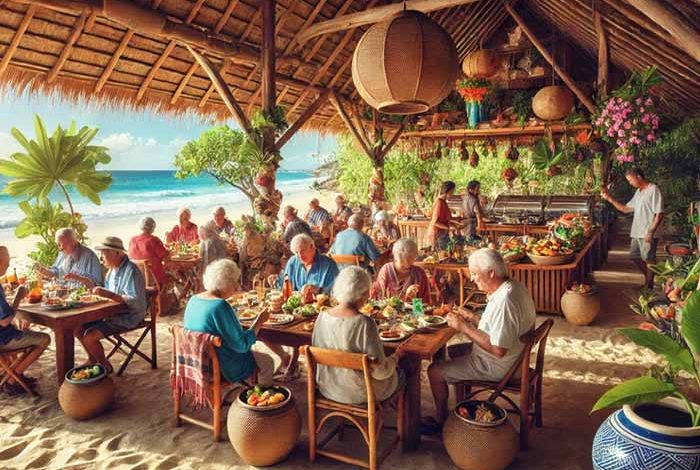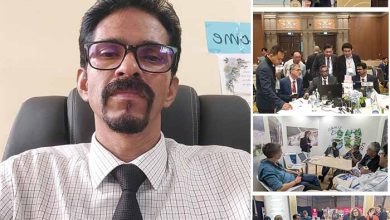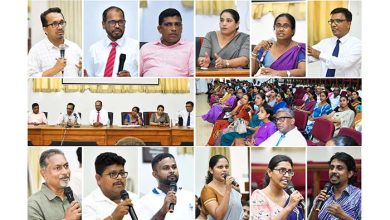Permanent Tourism: Unlocking Sri Lanka’s Retirement Potential


By Dr. Dietmar Doering
Social Scientist, Head of AGSEP Research and a Tourism Promoter
Tourism has long been a pillar of Sri Lanka’s economy, traditionally centred on short-stay leisure visitors. Yet shifting global demographics—particularly the increasing mobility of retirees—present a new, high-value opportunity: Permanent Tourism.
Permanent Tourism refers to long-term stays or relocations of foreign retirees. By positioning Sri Lanka as a preferred retirement destination for German, Austrian, and Swiss pensioners, the country can generate stable foreign currency inflows while creating social, economic, and regional benefits.
Target Market: German-speaking Retirees
Germany, Austria, and Switzerland collectively host a large and growing senior population with significant pension income:
- Germany alone has ~18 million citizens aged 65+.
- Over 150,000 retirees from these countries could realistically relocate to Sri Lanka over the next five years.
Economic Impact: These permanent residents could generate foreign currency equivalent to 5.4 million short-stay tourists annually, assuming an average pension of €1,800/month.
Example Calculation:
150,000 retirees × €1,800 × 12 months = €3.24 billion/year (~USD 3.4 billion/year)
Unlike seasonal tourism, this represents stable, year-round revenue.
Push Factors Driving Retirees Abroad
- Rising Living Costs: Inflation and energy prices make retirement in Europe increasingly challenging.
- Healthcare Expenses: Out-of-pocket costs are growing as public systems strain.
- Government Cost-Cutting: Subsidised elderly care and assisted living are increasingly limited.
- Safety Concerns: Urban unrest and rising crime rates push retirees toward safer environments abroad.
Pull Factors: Why Sri Lanka is Attractive
Sri Lanka offers a combination of advantages that make it appealing for long-term residency:
- Affordable Living: Lower costs allow retirees to maintain a higher standard of living.
- Safety & Peace: Low crime rates and cultural respect for seniors create a secure environment.
- Health & Climate: Tropical climate, sunshine, and fresh air promote well-being.
- Cultural Respect: Seniors are highly regarded, supporting social integration.
- Connectivity: Direct or short-connection flights and manageable time zones facilitate easy communication with Europe.
Economic and Social Benefits
Foreign Currency Inflows: USD 2,000 per retiree per month → USD 3.4 billion annually.
Job Creation & SME Growth: Permanent residents stimulate local economies year-round, benefiting hospitality, healthcare, transport, and domestic services.
Regional Development: Retirees often prefer coastal or rural areas, supporting decentralised growth and relieving urban congestion.
Social & Cultural Exchange: Long-term residents invest in communities, fostering goodwill and mutual understanding.
Policy Recommendations
- Retirement Visa: Long-term (5–10 years) visas for pensioners with clear income requirements and simple renewal processes.
- Investment Facilitation: Permit property rental/purchase and encourage senior-friendly community development.
- Healthcare Collaboration: Partnerships between European insurers and local providers; senior-focused facilities with international standards.
- Marketing & Promotion: Targeted campaigns in German-speaking countries; participation in retirement fairs and exhibitions.
- Legal & Social Protections: Transparent regulations and community integration programs.
Conclusion
Permanent Tourism represents a transformational opportunity for Sri Lanka: stable foreign currency inflows, job creation, regional development, and cultural exchange.
By attracting 150,000 German-speaking retirees, Sri Lanka could achieve economic returns equivalent to 5.4 million short-stay tourists annually—with greater stability and less seasonal vulnerability.
With strategic policy, effective marketing, and infrastructure investment, Sri Lanka can emerge as a leading retirement destination in Asia, alongside Thailand and Malaysia, pioneering a sustainable, long-term tourism model.






